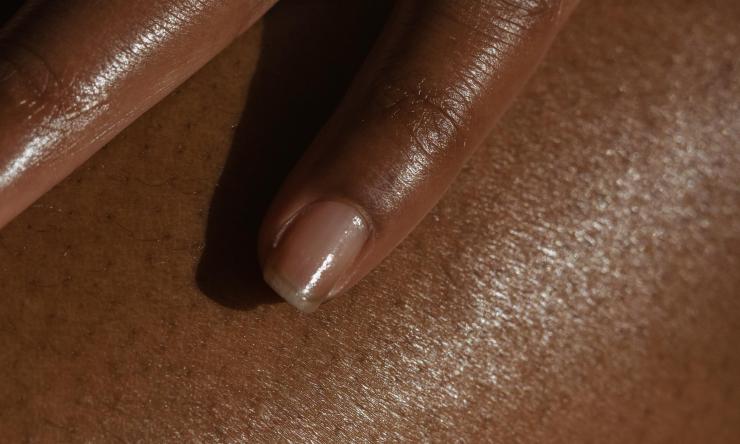May is Skin Cancer Awareness Month - Know the Facts!
May is , and according to the American Academy of Dermatology, it is the most common cancer in the United States with millions of cases diagnosed every year. Dr. Ida Orengo, chair of the Department of Dermatology at ˛ÝÁńÉçÇřČëżÚ, shares how you can protect your skin and prevent damage from excessive sun exposure, which is the most common cause of the development of skin cancer.
If possible, Orengo says it is best to avoid the sun between 10 a.m. and 4 p.m. If you must be outside during this time, make sure to wear:
- Protective clothing, like long sleeves, long pants and gloves.
- Tightly woven materials like cotton, denim or a polyester blend are best.
- A hat with at least a three-inch brim.
- Sunglasses with UV protection.
- A thick layer of sunscreen (chemical or physical) with a minimum of 30 SPF. Sunscreen does expire and can do so quicker when left in the car or in the hot sun.
"Chemical sunscreens are liked by a lot of people because they are invisible or not very noticeable when you put them on," Orengo said. "Physical sunscreens are physical blockers and do not contain chemicals. They contain titanium and zinc oxide; they will have a pigment to them."
She adds that it is best to apply sunscreen 20 minutes before exposure to the sun, reapply it every couple of hours and invest in a waterproof sunscreen if you'll be sweating a lot outdoors or engaging in water activities. A common area of the body where people forget to put sunscreen is around their eyes and ears.
"We usually don't put sunscreen around our eyes because we are afraid it can go in our eyes and possibly burn. You do want to be careful when putting it on in this area or you can wear sunglasses. Also, put sunscreen around and inside your ear. People who have thinning hair should get a spray sunscreen to put on their scalp or wear a hat," Orengo said.
Early skin cancer detection is important, so Orengo recommends that people with risk factors, such as fair skin and a family history of skin cancer, should get skin cancer screenings every year. If you have already had skin cancer, then you should be screened by a dermatologist every six months. Everyone should be screened for skin cancer at least once in their life to assess risk and get educated on how to prevent skin cancer and what to look for. She also notes that skin cancer can appear differently in different skin tones.
"We normally see most skin cancers in people with fair skin, blue or green eyes and blonde or red hair. These people are at a higher risk, but are not the only ones who can get skin cancer. Patients with darker skin can develop skin cancer, which doesn't have the usual translucent look that we see in textbooks," Orengo said. "Warning signs that a lesion may be cancerous are lesions that are changing, bleeding and ulcerating. When this happens, see a dermatologist to have them looked at. Don’t be afraid of a biopsy to make the diagnosis. This is an easy procedure that is covered by insurance and could save your life.”



